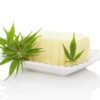Guides
Hemp: What is it And Why is it Important?
Hemp has an ancient history, but what makes it important today may surprise you.
Hemp or industrial hemp doesn’t get a lot of hype when it comes to the booming cannabis industry. But maybe it should. It is an extremely versatile agricultural product. It plays a role in industry, manufacturing, even medicine. And if you’re a part of today’s cannabis scene, products made from this plant can add exciting new dimensions to your smoking experience.
If you’ve never thought much about hemp, or if you’re just looking for more information, this guide is for you. We’ll look at the most interesting aspects of this plant, including what it is and why it matters.
Hemp Overview

So what is hemp anyway? Is it part of the cannabis plant? Is it illegal?
The truth is that it varies as widely as the different conditions in which it grows. But overall, every variety of cannabis that’s grown for hemp production is a fiber-rich, stalky plant.
Both industrial hemp and cannabis buds used as a drug come from the same species. Both contain THC and CBD among other compounds. But the difference between hemp plants and the plants we use to grow cannabis flowers has to do with the strain.
Hemp plants have very different chemical compositions. Usually, this means lower to negligible tetrahydrocannabinol (THC) content, and higher concentrations of cannabidiol (CBD).
So “hemp,” by definition, means either the specific strain of plant that’s grown for its fiber and not its flowers. Or, it refers directly to the extracted fibers of the plant. The crucial thing to understand is that it is not marijuana.
It isn’t psychoactive, and that gives it some wiggle room with respect to the law. Laws vary across different countries, but most regulate THC and only allow plants with very low THC concentrations.
In the United States, though, those laws are pretty strict. That’s thanks to the Controlled Substance Act, passed in 1970, which treated hemp and marijuana the same. Any imported product has to have less than 1 percent THC.
Some states like Colorado and Oregon, have returned to cultivating this plant after legalizing cannabis, but only on a small-scale. Resistance from the DEA makes large-scale operations unrealistic.
History of Hemp
The history of this plant is truly ancient. Fibers from the Cannabis sativa plant were first woven into usable fiber about 10,000 years ago. That makes cannabis one of the first plants humans ever turned into textiles.
Even more incredibly, production of the plant was a kind of global phenomenon. Archeological evidence suggests Cannabis sativa grew all across the northern parts of the planet. All the way from Europe to East Asia.
Ancient humans used it for all kinds of things, including paper, paint, food, and fuel. But it was in south-central Asia that cultivators started enjoying themselves by inhaling smoke from the plant.
It was this turn to the drug-bearing variety of the cannabis plant that really catapulted the plant into the fame, fortune, and popularity it still enjoys today.
In the United States, hemp has its own unique history. The nation’s settlers and “Founding Fathers” cultivated it—or more accurately, their slaves did. And they got rich selling things like rope and ship sails to the British Navy.
George Washington himself wrote extensively in his diary about his special cash crop. Many other presidents also farmed the plant, including Thomas Jefferson.
Hemp and Today’s Cannabis Scene

High-potency flower, concentrates, and edibles dominate the cannabis scene today. So what about hemp? Does anyone have any interest in the fibrous part of the cannabis plant? And why?
The plant gets around some of the federal prohibitions on cannabis because of its lack of the psychoactive chemical THC, which gets cannabis users high.
But even though it is low in THC, and is not good for psychoactive effects, it can be very rich in CBD. And of course, CBD is the cannabinoid many scientists have linked to the promising medical and therapeutic benefits of marijuana.
In states where marijuana is still entirely illegal, folks are often able to get their hands on CBD products made from legal hemp. The legendary medical strain, Charlotte’s Web, is one example.
But the most common form is CBD oil derived from cannabis fibers. And since hemp is often cheaper to produce, CBD medicines that come from it can be more affordable and accessible for patients.
Beyond CBD, however, hemp products are popular as accessories for the cannabis lifestyle. Wraps made out of it are replacing traditional tobacco wraps for blunts.
Similarly, hemp wicks can offer a more flavorful and potent smoking experience. And there are all varieties of clothing and footwear made out the plant’s fibers. Some even provide secret spots to stash your stash.
Why Hemp Matters
Hemp matters for all of the reasons detailed above. Compared to other major agricultural products, it is one of the most versatile in existence.
Beyond the ability to make an incredible range of industrial products, from fabrics to plastics and even building materials, the plant’s seeds are extraordinarily nutritious.
Having some knowledge about the many industrial, commercial, and health applications of the plant can help grease the wheel of legalization. By showing that cannabis doesn’t just produce a drug people enjoy, but products people can use, you can help make the case for ending the prohibition on cannabis.
Wouldn’t we all like healthier environments, more nutritious food, and more sustainable commodities? Hemp offers all of that. It always has. And that’s why it matters.
See Also For Hemp


















